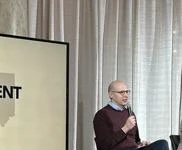Judges Divided On Retrial For Voluntary Manslaughter
Jennifer Nelson for www.theindianalawyer.com
In a case of first impression, the Indiana Court of Appeals reversed a man’s conviction of voluntary manslaughter, which the state chose to charge him with after he shot and killed his brother-in-law in what he claimed was self-defense.
Billy Brantley lived with his sister Martha Gunn, her husband Bruce Gunn and the couple’s minor son, Sean. Bruce had a history of chronic physical and mental health problems. He and his wife often verbally fought with each other and he was once arrested for domestic battery for choking Martha.
On July 14, 2014, after returning from a job interview, Brantley heard the couple fighting. The two were seated while arguing. Bruce was asked by Brantley to calm down, but he said he was going to “take care of all of his problems,†as he stood up. Brantley, believing Bruce was holding a knife fatally shot Brantley one time. The object turned out to be Bruce’s glasses.
The state charged Brantley with voluntary manslaughter, which the Court of Appeals pointed out it could not find an Indiana case in which someone hadn’t been charged or convicted of that crime who hadn’t also been charged with murder, although it does appear in the criminal code as its own crime. Brantley was convicted of the charge.
The state must prove sudden heat whether the charge is brought as a stand-alone charge or as a lesser included offense to murder, Judge Edward Najam wrote. And in this case, the state failed to produce any evidence, let alone prove by a reasonable doubt, that Brantley acted under “sudden heat†when he knowingly killed Bruce, he continued.
Here, neither party presented any evidence of sudden heat or made argument to the jury that Brantley acted under sudden heat. There was no evidence presented that Brantley was angry, enraged, suddenly resentful, or in terror,†Najam wrote. “There was no evidence that Brantley was anything but calm at all relevant times. And the State never argued otherwise to the jury … .â€
Najam and Judge Melissa May wrote that the state cannot retry Brantley because of the insufficient evidence, leading to a dissent from Judge L. Mark Bailey. He took issue with a jury instruction that said “the state has conceded the existence of sudden heat by charging voluntary manslaughter instead of murder.â€
Bailey wrote that there is evidence of provocation and a sudden killing, so there is evidence from which the jury could conclude that Brantley acted in sudden heat. He would permit retrial on the charge of voluntary manslaughter and remand to the trial court.
The case is Billy Brantley v. State of Indiana, 49A04-1606-CR-1401.




